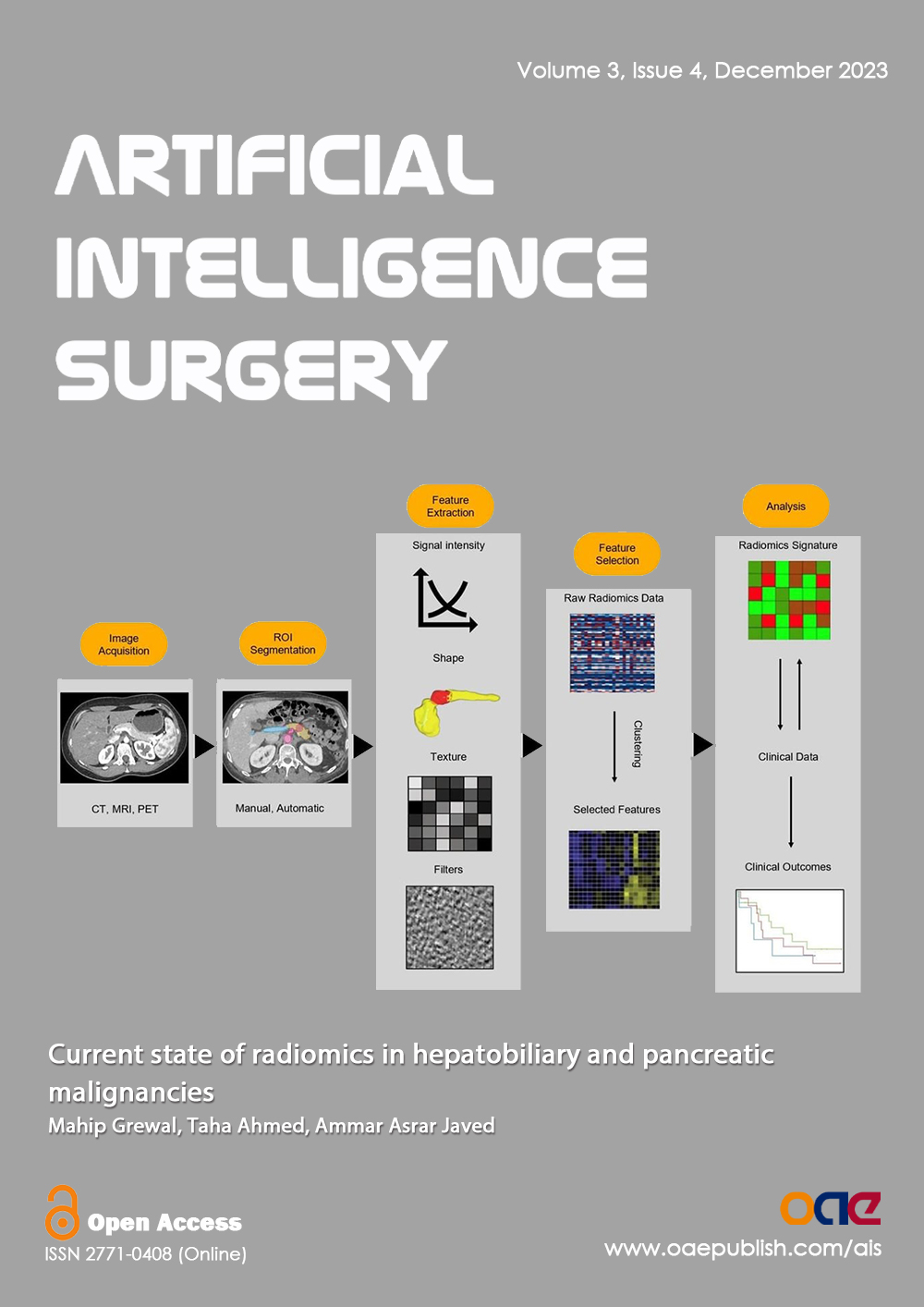Volume 3, Issue 4 (December, 2023) – 5 articles
Cover Picture: Rising in incidence, hepatobiliary and pancreatic (HPB) cancers continue to exhibit dismal long-term survival. The overall poor prognosis of HPB cancers is reflective of the advanced stage at which most patients are diagnosed. Late diagnosis is driven by the often-asymptomatic nature of these diseases, as well as a dearth of screening modalities. Additionally, standard imaging modalities fall short of providing accurate and detailed information regarding specific tumor characteristics, which can better inform surgical planning and sequencing of systemic therapy. Therefore, precise therapeutic planning must be delayed until histopathological examination is performed at the time of resection. Given the current shortcomings in the management of HPB cancers, investigations of numerous noninvasive biomarkers, including circulating tumor cells and DNA, proteomics, immunolomics, and radiomics, are underway. Radiomics encompasses the extraction and analysis of quantitative imaging features. Along with summarizing the general framework of radiomics, this review synthesizes the state of radiomics in HPB cancers, outlining its role in various aspects of management, present limitations, and future applications for clinical integration. Current literature underscores the utility of radiomics in early detection, tumor characterization, therapeutic selection, and prognostication for HPB cancers. Seeing as single-center, small studies constitute the majority of radiomics literature, there is considerable heterogeneity with respect to steps of the radiomics workflow such as segmentation, or delineation of the region of interest on a scan. Nonetheless, the introduction of the radiomics quality score (RQS) demonstrates a step towards greater standardization and reproducibility in the young field of radiomics. Altogether, in the setting of continually improving artificial intelligence algorithms, radiomics represents a promising biomarker avenue for promoting enhanced and tailored management of HPB cancers, with the potential to improve long-term outcomes for patients.
view this paper 









